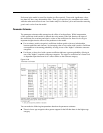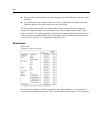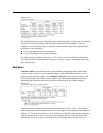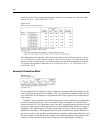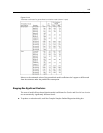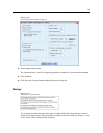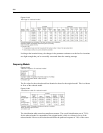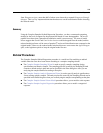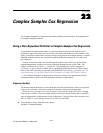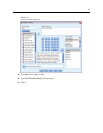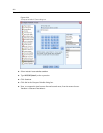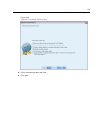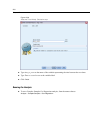
209
Complex Samples Ordinal Regression
from Disagree to Agree, more than half of whom were observed to respond Disagree or Strongly
disagree. This is a very important distinction that deserves careful consideration before choosing
the reduced model.
Summary
Using the Complex Samples Ordinal Regression Procedure, you have constructed competing
models for the level of support for the proposed bill based on voter demographics. The test of
parallel lines shows that a generalized cumulative model is not necessary. The tests of model
effects suggest that Gender and Votedinlastelectioncould be dropped from the model, and the
reduced model performs well in terms of pseudo-R
2
and overall classification rate compared to the
original model. However, the reduced model misclassifies more voters across the Agree/Disagree
split, so the legislators prefer to keep the original model for now.
Related Procedures
The Complex Samples Ordinal Regression procedure is a useful tool for modeling an ordinal
variable when the cases have been drawn according to a complex sampling scheme.
The Complex Samples Sampling Wizard is used to specify complex sampling design
specifications and obtain a sample. The sampling plan file created by the Sampling Wizard
contains a default analysis plan and can be specified in the Plan dialog box when you are
analyzing the sample obtained according to that plan.
The Complex Samples Analysis Preparation Wizard is used to specify analysis specifications
for an existing complex sample. The analysis plan file created by the Sampling Wizard can be
specified in the Plan dialog box when you are analyzing the sample corresponding to that plan.
The Complex Samples General Linear Model procedure allows you to model a scale response.
The Complex Samples Logistic Regression procedure allows you to model a categorical
response.



